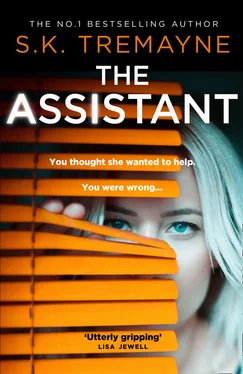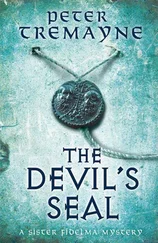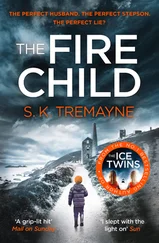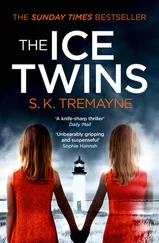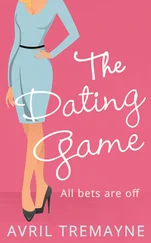I look behind.
No one.
I look at curtained windows and blackened doorways and I see no signs of human life, and that makes it worse.
My heart flutters, dances, twirls with the urban worry. The intrinsic vulnerability. Dad running out to grab me, towards the end, trying to be kind, loving, funny, like before, like he always did, but doing it too fast, too violent, and making it scary. No. No no. I feel a need to run, to get out of here, to flee. The panic rises. Help me. Help me.
I am nearly at the end of the lane. Nearly at busy Archway Road with its traffic and people and streetlamps. Breathing slowly, I regain my sensible, logical self. I panicked, that was all, thrown by Liam’s faintly creepy remarks. No, I am not being followed; no, the Tube station is not surrounded by Romanian wolves.
Liam was just being … Liam? Probably he’s got a girl and wants me out of his life, out of his mind. So he frightens me away. Probably he was with her even as I messaged, and he panicked.
Yes.
I climb aboard a very empty carriage, and the train rattles me through Archway, Tufnell Park, Kentish Town. When I alight at Camden I walk out into relative busyness. The pub opposite the Tube, the Mother Damnable, now the World’s End, is pumping out rock music. Lads are smoking weed in the wicked cold, and laughing at lurid jokes, in this place where travellers once hid from outlaws.
The rest of my walk is short, up Parkway, past closed cafes, dirty drifts of snow, and upmarket pubs, the sense of wealth accumulating with each step. From the dry homeless hostels of Arlington Road, costing £2 a night, to the palatial sweep of the Nash Terraces – costing £20,000 a square yard – in a few minutes’ walk.
I am nearly home. At the top of Parkway, I turn – and stop. Standing on the pavement opposite my house – the house which contains Tabitha’s flat, is a knot of people. Drinkers from the local pub probably, the Edinboro Castle. They are all gazing in the direction of my flat but I can’t see why, can’t see what’s so absorbing about my flat, because the house itself is around the corner.
The nearer I get, the more confusion I read on their faces. What can they see in my home? What is happening?
As I reach the corner, I look up.
And, yes: I see. Yet I wish I didn’t.
Abruptly, all the lights in the flat flick on. They are blazing. Every single one. The blinds are up, and the windows are showing the red-painted walls, the expensive TV, Tabitha’s favourite steel sculptures. Then all the rooms go black, and the windows reflect the Delancey streetlights, the parked wet cars – and another gentle, silvery falling of snow. A moment later, it repeats. The lights go on, then off. Off, then on. Every single light and lamp.
It’s as if the flat is actually alive. Signalling to someone out there. Using Morse code. Signalling to whom? And who is in there, doing the signalling?
No one. Or no one human.
I hear a voice, my name: called out.
It’s my neighbour, from about three doors down. Deborah Welland. She’s in a dressing gown, shivering in the cold. The drinkers disperse, shaking their heads, as Deborah approaches. Debs is a nervous woman, mid-forties, divorced, dyed hair, the type of woman that complains to the council about everything: too many trees, a lack of trees, too many buses, the dearth of buses, but she also means well. Deborah would lend me the last cup of sugar in her flat, and she likes three spoonfuls in a mug.
‘Debs, what is it? What’s wrong?’
It’s a stupid question. We both know what’s wrong. She gestures, upwards, to those decorous, cast-iron Juliet balconies.
‘All night,’ Deborah says, gazing with a kind of frightened wonder. ‘All night they’ve been doing that. Your lights flick on. Then off. On, then off. Like some code.’
She shakes her head. And looks at me. With pity?
‘I first noticed about eight o’clock, as I was coming home from work. Saw all your lights doing this. Flickering. I thought it must be your fuses. But it’s been going on so long. ’
As we both gaze upwards, the lights in my empty flat do it again. They flash on. Then off. Repeatedly. For a minute. I am holding my breath, frightened like a young child confronted by an adult horror movie. Why is this so scary, yet so hypnotic?
Because it must be the Assistants. They have control of the lights. I feel a certain relief, that others are witnessing this, even as the uncanny fear grows. What exactly are we all witnessing?
‘It’s weird … I am sorry, but it is,’ says Deborah. ‘It’s like there’s somebody in your flat, flicking all the switches. But you can’t see them. You haven’t got a ghost in there, have you?’
She is trying to make a joke of it. But this feels anything but funny. The tiny flickers of snow are melting on my face; and my sweet, mildly neurotic neighbour Deborah is properly unnerved.
‘I tried to call Tabitha.’ Deborah lifts an extended thumb-and-little-finger to her ear, as if holding an old-fashioned phone. ‘Thought she should know, as it’s her place and everything … But I couldn’t get through.’
‘I’ve been at a pub. With her. I guess she had it switched off?’
‘Jesus look – there they go again—’
Deborah is right. The lights are flashing, flashing across Delancey, flashing at Cumberland Terrace, flashing at the empty vastness of Regent’s Park, and the lunatic wolves trapped in their tiny pens at the zoo.
‘I’d better go in,’ I say, keeping my voice calmer than I feel. ‘It’s probably some glitch with the technology – you know what Tabitha is like. Everything is always the best, always on the cutting edge, but things go wrong. Whole flat has been on the fritz the last few days.’
Deborah looks at me. Squints. As if trying to work out if I am being sarcastic.
I say a cold goodbye. With shivery hands I press a key to the front-door latch, and I find that I am taking big soothing breaths. Stay calm. I don’t want to go in the flat. Stay calm. I DON’T WANT TO GO IN THE FLAT.
Standing by my door, I can sense Deborah’s eyes on my back, pitying, fearful, as I step across the threshold into the dry and the warmth, and the piles of slippery flyers for curry houses and pizzerias and burger chains gathering like drifts of autumn leaves in the hallway.
Big deep breath. If I’m going to confront this, I have to do it fast or not at all. Marching up the steps, I press the key into the latch of my internal door, Tabitha’s door, I still don’t feel this place belongs to me in any way, maybe I don’t want to be too closely associated with it.
What am I about to see? I imagine all manner of ludicrous technological monsters, gibbering spectres made of electricity. Or dead things. My dead father. My dead father will be sitting in a corner and talking to me. Drooling.
Stop. Calm.
Key. Turn.
The door opens. I see a well-lit flat. Orderly and normal. Red painted walls. Pictures and photos from Tabitha’s many travels, some of the ones we did together, most she did with boyfriends, and Arlo.
Ceramic Mexican skulls commemorating the Day of the Dead. A tiny, authentic ancient Egyptian statue: a man with a dog’s head.
Stepping inside the inner hallway, I make for the living room. The silence is like the hum of a meditation bowl.
Nothing has changed. I can see that chunk of volcano from Ethiopia. And the beautiful, somehow melancholy seashells from Sanibel, Florida. Plus shelves of books – Tabitha’s literary fiction and natural history, and below them racks of my books: thrillers and mysteries and art history, and those endless guides to screenwriting.
Читать дальше
